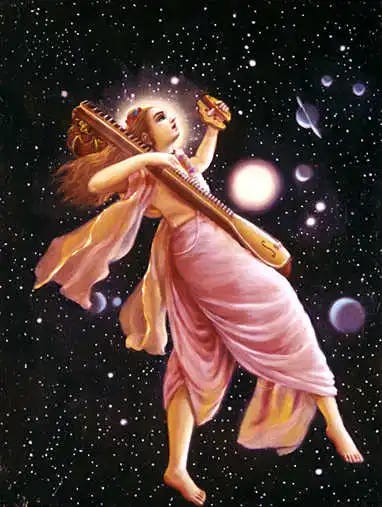Back to the future
Ancient sages flying through space... giant bird carriers that talk... monkeys jumping from one country to another... a vast ocean of milk and honey... it all sounds like something from the Wizard of Oz. However, these are some of the accounts you find in the ancient Vedic literature. Many respond to these sections by calling them mythology, and rather appeal to the moral and philosophical lessons behind these ancient stories. However, the authorised teachers who commentate upon the Vedic scriptures explain that these are all real entities, real objects and real events. But can we really believe that?
To define reality simply upon what we can directly perceive is extremely irrational. Have we personally been to Mars? Have we even been to Ecuador? Have we ever seen a blue whale? If the answer is no, is the next logical step to call these things mythology and reject their existence outright? Human beings have direct contact with an extremely minute portion of the creation, and of that we can only perceive a fraction. How accurate can our judgements on the expansive universe really be?
One hundred years ago, if you told someone about blue tooth, Concorde and modern-day hospital technology, it would have probably sounded like fantasy and fairytale. Each generation have their own limited grasp of reality. The Vedas explain that people of the previous ages were of a different calibre - they had advanced spiritual technology, access to subtle sciences and phenomenal bodily abilities. Their activities and inventions may sound quite extraordinary to us... but it doesn't make them any less real.


